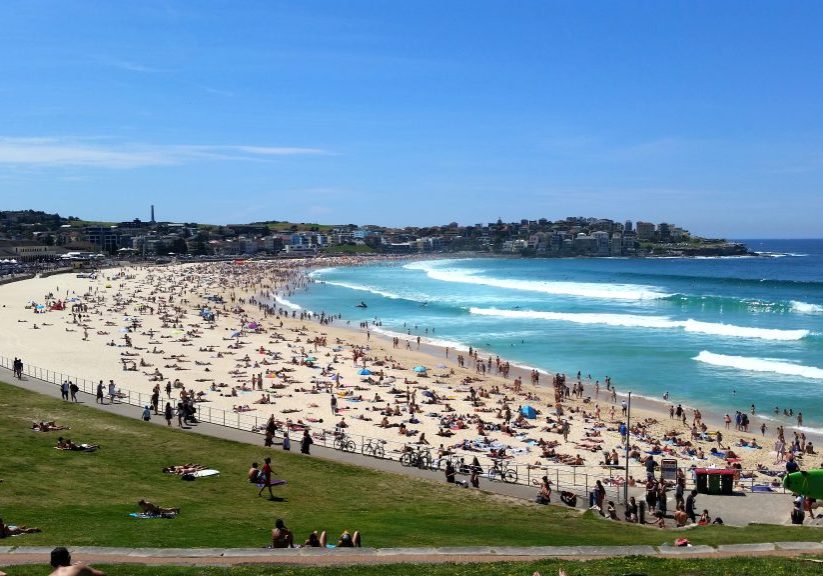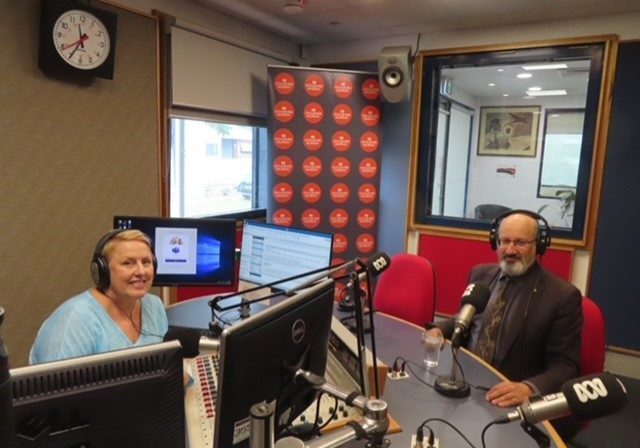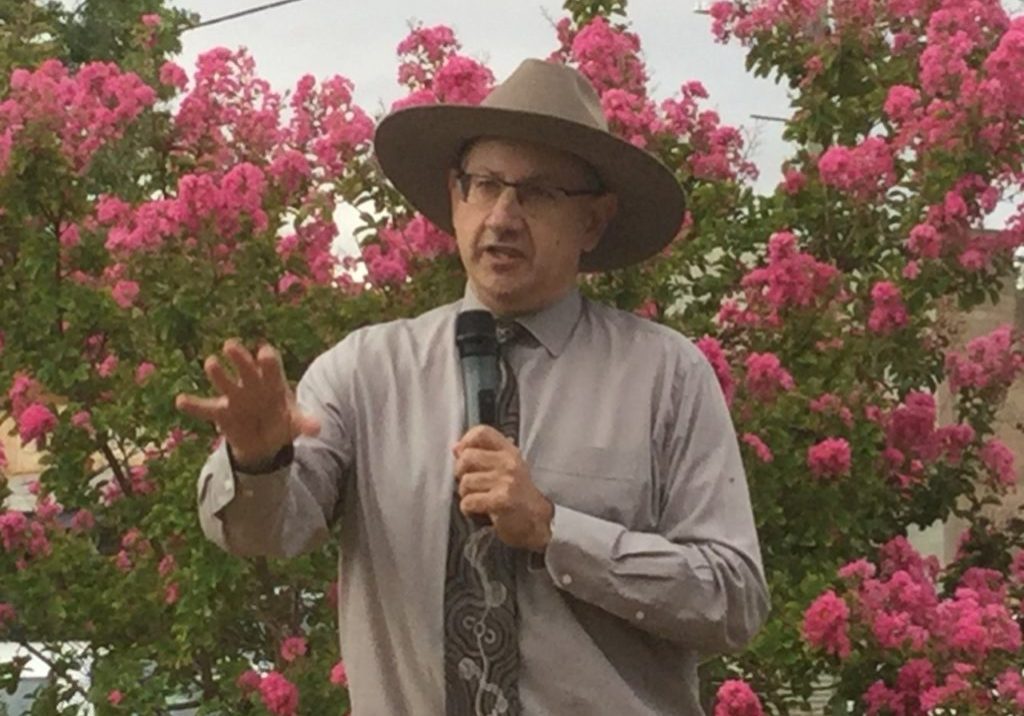Australia/Israel Review
Editorial: The Democracy Dividend
Feb 1, 2005 | Ted Lapkin
The Democracy Dividend
It would be hard to think of a more auspicious way to begin 2005 than by holding elections in Iraq and the Palestinian Authority. Indeed, it would be difficult to overestimate the potential impact of these two momentous events on the future of the region, and even on regions far removed from the Middle East.
As part of the American push for democracy in the region, it is hard to see a downside to elections. For the first time, 25 million Iraqis and more than 2 million Palestinians will enjoy the freedom to choose their leaders, who will then be expected to steer their respective societies towards liberty and democracy. Should the project succeed, it could send shockwaves through other Middle East dictatorships such as Saudi Arabia and Syria, sending a message that tyranny in the region will not be tolerated.
To be sure, the process of democratisation in the Middle East will not be easy. In almost all ways, the region is in complete turmoil– it is home to well over 300 million residents, the majority under the age of 30, mostly poor. More than 60 million people are illiterate, most of them women, and there are fewer internet connections than in any other region in the world. Human rights abuses in the region are legendary, from stonings in Nigeria to Saddam Hussein’s acid baths to honour killings in almost every country.
Politically, the region is no better off. Aside from Israel, every single country from Algeria to Iraq and beyond is a dictatorship. Throughout the Arab world opposition parties are illegal or legally marginalised, and newspaper editors have learned to toe their government lines or pay dire consequences. While it is true that the Arab world historically produced invaluable contributions to world society, it is equally true that today’s Middle East poses the single greatest current threat to international security on the planet.
That said, there is reason for cautious optimism. The wake of the Iraq war brought Libya scurrying to give up its WMD programs for fear of facing the same fate as Iraq. And Egypt, long an out-of-order “bridge” between Israel and the Arab world, has capitalised on the death of Yasser Arafat to encourage the Palestinians towards policies that would enable peace negotiations with Israel to resume.
If the West is serious about introducing liberty and freedom to the Middle East, these are the issues it must tackle in Iraq and the PA. Elections are an important step in this process, but they are not a means to an end. Once elected, the incoming governments must set about creating education and job opportunities for young people, as well as the rule of law, backed up by truly independent judiciaries. They must display political and fiscal transparency, and ensure basic freedoms such as freedom of speech and assembly that will necessarily open their governments up to criticism. Only thus will their respective societies be able to grow and flourish.
To be sure, this approach requires a dramatic and consistent shift in Western policy. Former Soviet dissident (and subject of our cover story) Natan Sharansky tells a story about a conversation he had with an American diplomat following the first Gulf War in 1991. As Sharansky pushed representatives of the first Bush administration to encourage the Arab world into granting greater freedoms to its citizenry, his American hosts replied, “You must understand, the Saudis control the world’s largest oil reserves. They are our allies. It is of no concern to America how the Saudis rule their own country. Saudi Arabia is not about democracy. It is about the stability of the West.”
If the American experiment in Iraq is to bear fruit, there must be a fundamental shift away from this attitude. Especially in today’s Middle East, where fanatical anti-Westernism is the norm, the West must be willing to weather any storms of short-term, negative results in order to get to an outcome that will eventually benefit Western interests. Radical political parties of all descriptions–secular and Islamist, Sunni and Shi’ite– could stand to win electoral seats in many countries, and could conceivably garner pluralities in such places as Gaza, Egypt, and Saudi Arabia were truly representative elections held.
In the long-term, however, such results could be overwhelmingly positive. Individuals and groups with totalitarian outlooks may indeed be elected, but if they are forced to maintain governmental transparency and freedom of the press, it would go a long way towards debunking these groups in the eyes of many Middle Easterners, a fact that would likely limit the life-span of radical governments.
In the absence of such an approach, elections could even actively set back the cause of freedom. In 1996 the world watched as Yasser Arafat intimidated opponents, nullified primary results and closed newspapers during a five-week election campaign. On election day, observers watched teams of Arafat-linked thugs offer to “help” illiterate people vote, presumably not for Arafat’s no-name opponent Samiha Khalil.
But rather than denounce the elections as a fraud, Western observers such as former US President Jimmy Carter lauded the poll as “open and fair”, thereby granting legitimacy to Arafat’s corrupt dictatorship, and helping entrench his power. The message was clear, not only to Arafat but to the rest of the region’s dictators and peoples: quasi-elections that grant “legitimacy” to dictators for the region are acceptable, or even perhaps what democracy is really about.
Democratic elections are undoubtedly a positive sign, but they must be accompanied by increased individual liberties in all areas. As Sharansky outlines, there is no such thing as a drop of freedom. Once people feel the first drop of individual liberty, the desire for full freedoms of expression, assembly, justice will quickly develop into a gushing popular demand.
May these elections be the beginning of a regional shift towards democracy, liberty, and eventually towards peace.
ANDREW FRIEDMAN
******
Factually Challenged
There’s an old saying that opinions are like an unmentionable part of the human anatomy because everybody has one. Of course, different peple will honestly interpret the same events differently. But democratic respect for intellectual diversity should never extend so far that it waives the responsibility to base those viewpoints on fact rather than fiction.
And if this is a reasonable expectation of rank-and-file citizens, that standard should be doubly employed where public officials are concerned. On December 2, Julia Irwin MP (ALP – Fowler) failed this test with flying colors with a paean to Yasser Arafat that she delivered on the floor of Parliament. In a stunning display of bad taste and worse judgement, Irwin approvingly quoted Nelson Mandela’s portrayal of Arafat as “one of the outstanding freedom fighters of this generation.”
And it went downhill from there. Towards the end of her speech, Irwin lapsed from impropriety into pseudo-historical absurdity. Describing Arafat as the “father of Palestine,” Irwin declared: “His struggle for a Palestinian state began before the Israeli occupation of the West Bank and Gaza in 1967. His original struggle was against the Arab nations occupying Palestine.”
I’m sure Egypt would find that assertion quite interesting in light of the fact that Arafat’s Fatah movement was founded under the direct auspices of Egyptian President Nasser, and was absolutely unequivocal that the goal was to destroy pre-1967 Israel, not establish a state in the West Bank and Gaza. And while it is true that Arafat eventually came to blows with the Jordanians, that was in 1970. Irwin’s story of an epic pre-1967 battle between the Palestinians and ‘the Arab nations’ is nothing short of delusional.
The mishmash of dates, places and people made by Irwin on the floor of Parliament was noteworthy even by the wild and woolly standards of political debate in Canberra. But within the short space of a three-minute speech in the House of Representatives, Irwin attained the even more impressive achievement of completely missing the point.
Both Arafat’s Fatah movement and the PLO were founded prior to 1967 war in which Israel captured the West Bank and Gaza. At that time there were no “occupied territories” to liberate other than Israel itself. This conclusively demonstrates that the crux of the conflict is not Israel’s “occupation”, but rather Israel’s existence.
Irwin unwittingly conceded this point when she said: “Arafat knew only too well that the Camp David offer would not be accepted by his people.” In other words, Arafat rejected peace in the year 2000 because the Palestinians were unwilling to accept Israel’s right to exist as a sovereign Jewish state. That is the true obstacle to peace in the Middle East, and it’s long past time that Julia Irwin understood this.






